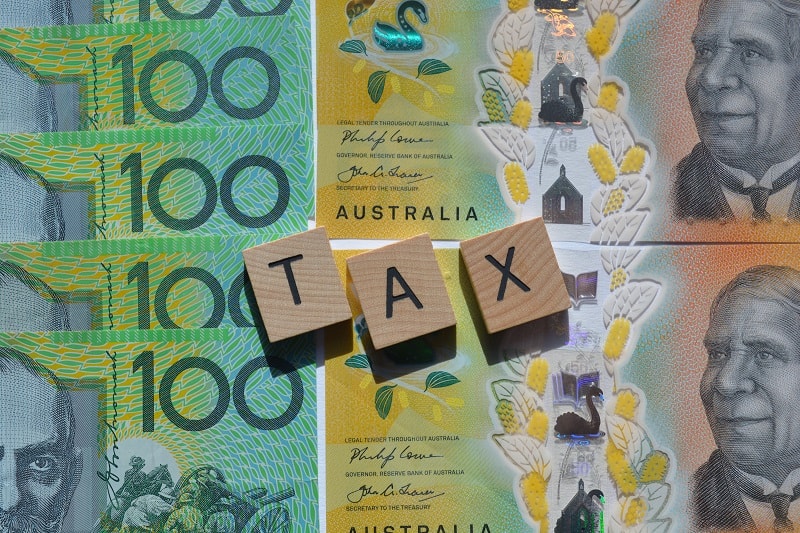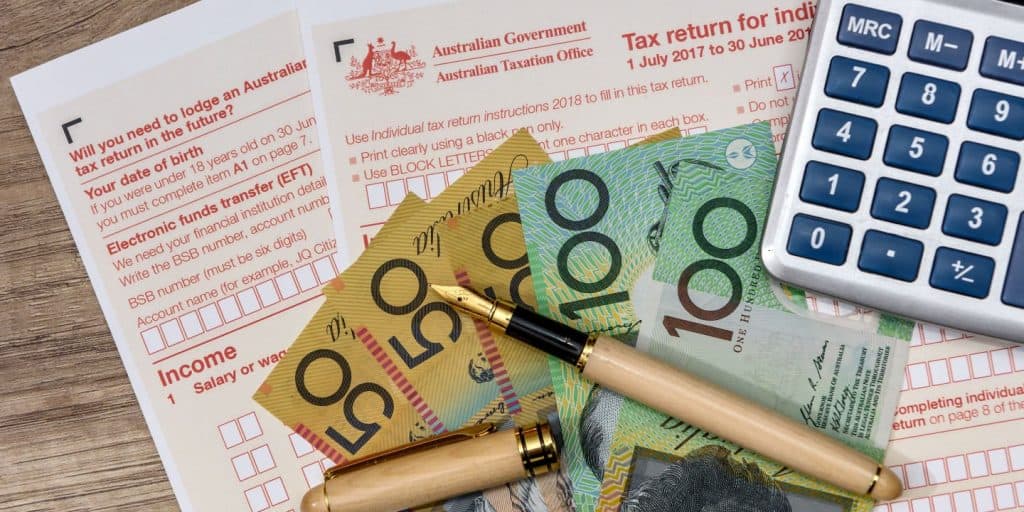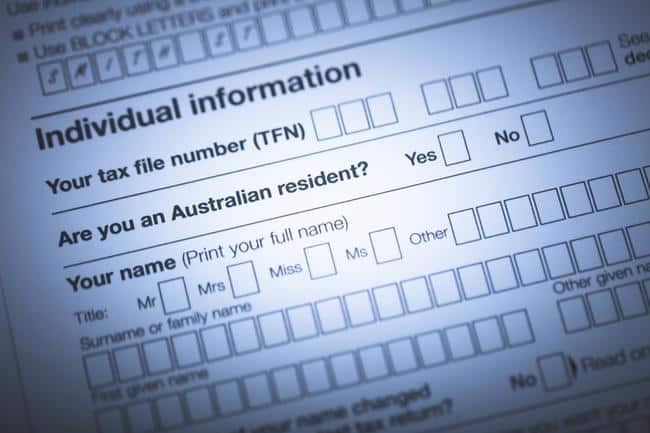Only thinking about tax once a year isn’t going to do you any favours. Effective tax planning should be continuous throughout the year if you intend to reduce your amount of tax liability.
Financial planning around your tax benefits any income earner and should be included in your overall investment strategy.
If you’re interested in how to reduce taxable income and save money in the process, here are some strategies to consider.
1) Are You Claiming Tax Deductions for Work-Related Expenses?
Any money spent on something work-related could be claimable.
For example, if you purchased something in your own capacity that you used for work, such as a laptop, it can be declared, and you can claim the money back as a work-related tax deduction.
All receipts must be saved, even if you’re unsure of whether something is claimable. Every small expense adds up and can save you a lot of money in tax deductions in the long run.
The Australian Taxation Office (ATO) classifies the following things as work-related tax deductions:
- transport and travel expenses,
- clothing, laundry and dry-cleaning expenses,
- working from home expenses,
- self-education expenses, and
- tools, equipment, electronics, stationery.
2) Why You Should Ask Your Employer for Salary Sacrificing
Salary sacrificing, also known as salary packaging, is when your salary is sacrificed to pay for certain expenses before you receive it in your account.
This means your employer pays the agreed-upon expenses from your salary before you are charged income tax.
As a result, you only pay tax on the balance, meaning you receive a smaller salary and reduce your taxable income, so you effectively pay less tax in total.
These expenses can be:
- car payments,
- loan repayments, and
- children’s school fees.

3) How Prepaying Expenses Yourself Can Result in a Tax Deduction
A beneficial way to reduce your taxable income is to pre-pay expenses.
Prepaying tax-deductible expenses a year in advance means you bring your deductions forward to the current financial year. This reduces your taxable income.
All pre-paid expenses cannot exceed $1,000 and must meet the 12-month rule: you can claim an immediate deduction as a pre-paid expense as long as the service is less than 12 months and finishes in the following income year.
4) How To Reduce Taxable Income Through Personal Super Contributions
A way to double up on your savings is to make personal contributions to your superannuation fund.
This is one of the tax planning strategies that’s particularly beneficial for high-income earners. These tax deduction claims mean you’ll only be taxed 15% from your super instead of paying a larger percentage of income tax from your salary.
Take note that this is only an allowable tax deduction if you’re making a personal contribution, not if your employer pays directly into your super from your pre-tax income.
You can achieve tax savings this way if your income is generated from:
- salary and wages
- a personal business,
- investments,
- government pensions or allowances,
- a foreign source,
- trust distributions,
- or a partnership.
5) Why Private Health Insurance Can Be a Tax Offset
The Australian Government has incentivised middle and high-income earners to use private healthcare, which lightens the load of the public health system. If you take out private health insurance, you receive tax rebates.
Most taxpayers are charged a compulsory 2.0% Medicare Levy. Single people earning more than $90,000, or families earning $180,000, who don’t have private healthcare insurance have to pay a minimum of 1% Medicare Levy Surcharge in addition to the compulsory 2.0% levy.
So, obtaining private healthcare insurance eliminates the 1% surcharge and results in a tax refund.
You can receive a tax offset for your private health insurance if you:
- are an Australian citizen,
- have a Medicare card, and
- have a taxable income of less than $140,000, or $280,000 as a family.

6) How to Reduce Taxable Income From Charitable Donations
You can receive a tax refund from donating to an ATO recognised deductible gift recipient (DGR) organisation.
You can donate cash to the organisation but make sure you have a receipt. If you want to donate a gift, keep the receipt. In both cases, the donation must exceed $2.
Other tax-deductible donations allowed by the ATO include:
- property purchased within 12 months before gifting,
- property valued at more than $5,000,
- shares valued at $5,000 or less,
- trading stock, and
- heritage gifts.
The amount of money spent on the donations doesn’t come back through a tax refund. Instead, the amount is deducted from your total taxable income, so you receive a percentage of the donation back.
7) Why Having a Tax Agent Is So Beneficial
Managing your taxes on your own is stressful enough, but trying to claim deductions on your taxable income without the guidance of a professional can land you in hot water if you’re not careful.
Any tax claims that look suspicious to the ATO will be investigated, even if they’re done incorrectly by mistake. Needless to say, it’s best to stay in the ATO’s good books.
A tax agent lodges your taxes for you, so you don’t have to worry about any mistakes. They have industry knowledge and expertise to help you find strategies to reduce your taxable income.
What’s more, their services are tax-deductible expenses.
You can claim a tax deduction for any expenses incurred when managing your tax affairs, including:
- receiving tax advice,
- travel costs associated with getting tax advice,
- preparation and lodging of your tax return,
- litigation costs,
- receiving a valuation for a deductible gift or property donation, and
- any interest imposed by the ATO.
Key Takeaways
Effective tax planning and reduce the income tax paid monthly, and increase your tax return at the end of the financial year.
You can minimise tax by:
- claiming work-related expenses,
- salary sacrificing,
- prepaying expenses yourself,
- making personal contributions to your super,
- taking out private health insurance,
- making charitable donations to DGRs, and
- using a tax agent.
Contact us today if you’d like to get personalised top tax planning strategies from our expert tax agents. We’ll tailor a plan suited to your circumstances – and you can claim back our service charges!






